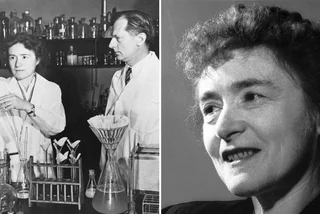A new drug to fight against prostate cancer has been approved by the Food and Drug Administration in the U.S. The innovative treatment was partly developed by a female Czech scientist working in Germany.
The drug, which relies on radioactive molecules, connects to and destroys diseased cells in a prostate cancer patient without any serious side effects. It took over eight years for the FDA to approve the drug, which has the trade name Pluvicto. So far, the drug has only been approved for the US market and only for patients who have not responded to other therapies. Approve from the European Medicines Association (EMA) is expected soon.
The drug’s active component is PSMA-617, which was developed by Czech nuclear chemist Martina Benešová and colleagues in Heidelberg, Germany. It has been found to be safe and effective against metastatic prostate cancer. PSMA stands for prostate-specific membrane antigen, a protein that is found in high amounts in areas affected by prostate cancer. PSMA-617 binds to areas with high concentrations of PSMA and destroys the nearby cancerous cells with mico-irradiation.
Benešová, who was born in Ostrava, studied at Charles University in Prague before going to Germany to pursue her doctorate. She earned her Ph.D. in three years and is continuing to pursue her research in Germany, where she has made a home for herself.
“It's an amazing, fantastic feeling,” Benešová told news server Deník N when the drug was approved.
PSMA-617 has so far saved or significantly extended the lives of thousands of patients in clinical trials conducted around the world. Swiss pharmaceutical firm Novartis will hold the rights to the drug. Novartis estimates that the drug could reach sales of $2 billion per year at its peak.
The first patient to try the drug has a 42-year-old man with advanced prostate cancer that had not responded to previous treatments and spread to his bones. He began therapy with the experimental drug in 2013. The patient began to see positive results after only a few days. It was then given to more patients who were in advanced stages of prostate cancer under special rules that allow for unapproved drugs.
Research into the new drug is continuing. “There are other clinical studies where the drug is being given to patients who have so far received only hormonal therapy or surgery, but not chemotherapy to see whether our [treatment] or chemotherapy is more effective,” Benešová said.
A clinical study has also been also launched where the drug is being administered to patients who have just been diagnosed with prostate cancer and have not received other therapies.
Benešová told news served iDnes in December that this drug is just the beginning.
“The effort does not end with one successful preparation. … Now we are trying to develop new radiopharmaceuticals for breast cancer that maybe one day they will work similar to the one for prostate cancer,” she said.
In the Czech Republic, doctors detect prostate cancer in about 8,000 men every year, with about one-fifth having an advanced case. About 1,500 men die of prostate cancer in the Czech Republic each year.
Doctors have long warned that prostate cancer can grow unnoticed for years. Urologists are working to introduce comprehensive prostate cancer screening. At the end of last year, they launched a pilot project trying to find out how best to find those who could be affected.












 Reading time: 3 minutes
Reading time: 3 minutes 




























